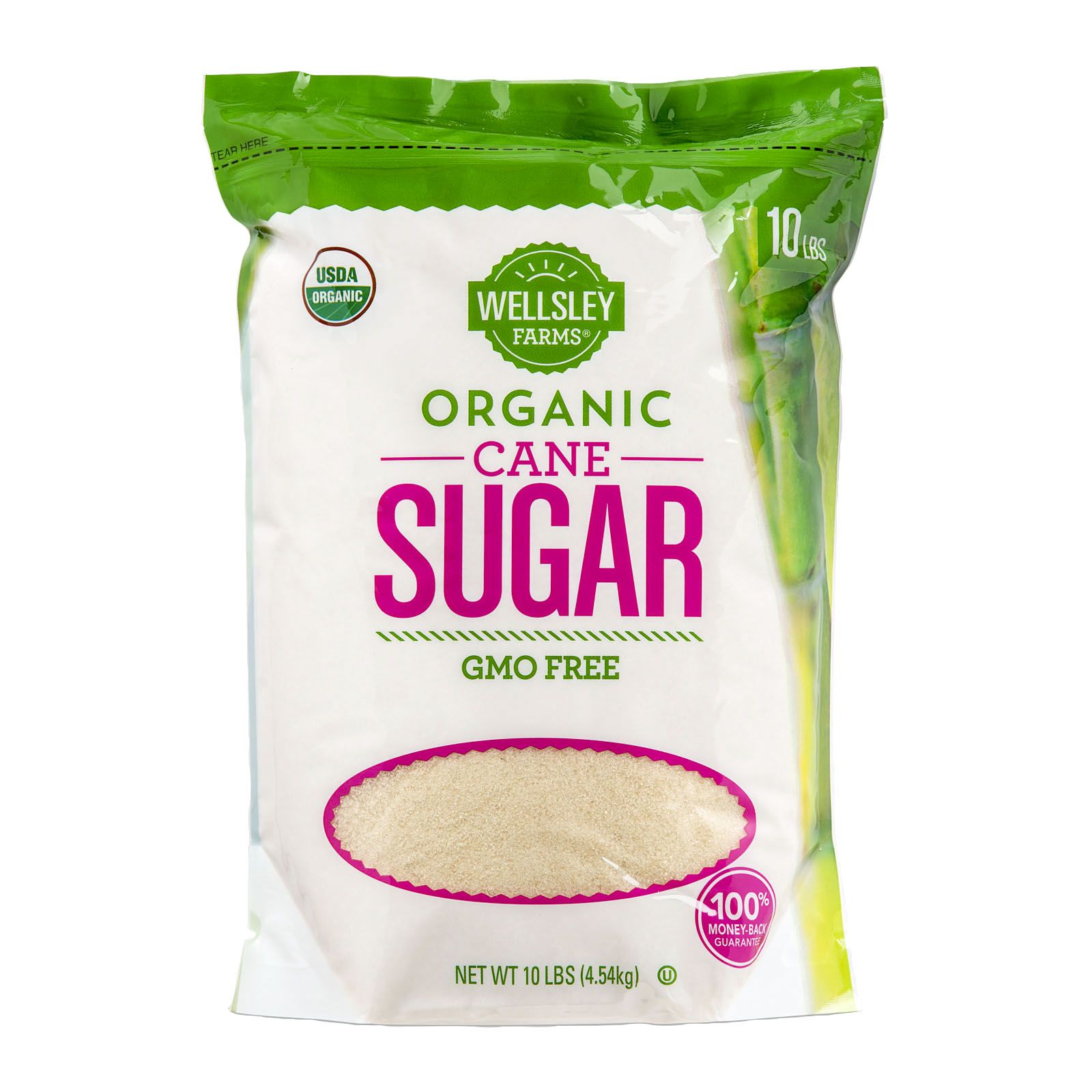Cane Sugar Processing Explained: What Occurs Inside a Sugar Mill
Cane Sugar Processing Explained: What Occurs Inside a Sugar Mill
Blog Article
A Comprehensive Review of the Wellness and Economic Implications of Walking Stick Sugar Handling on Local Areas
Cane sugar processing plays a crucial role fit the financial landscape of neighborhood areas, offering work opportunities and stimulating supplementary industries. Nevertheless, the wellness implications associated with high sugar usage can not be neglected, as they contribute to increasing prices of obesity and diabetes mellitus. This nuanced dynamic invites a critical exam of how communities can enhance economic gains while addressing the pressing health and wellness difficulties they deal with. The expedition of sustainable practices and educational initiatives may just hold the secret to reconciling these conflicting passions. What techniques might neighborhoods execute to accomplish this balance?
Economic Advantages of Walking Cane Sugar Handling
Walking stick sugar processing supplies significant financial advantages that extend beyond the instant agricultural sector. The farming and processing of sugarcane develop many job possibilities, from farming to manufacturing and circulation. This employment generation not just supports neighborhood economies yet likewise cultivates neighborhood growth by supplying stable revenue resources for households.
Additionally, the sugar industry promotes supplementary services, consisting of transportation, tools supply, and product packaging solutions (Cane Sugar Processing). As these sectors grow, they add to an extra robust financial framework, improving general community durability. The export possibility of processed walking cane sugar further enhances financial advantages, placing regions as affordable players in global markets
Investment in contemporary handling facilities can bring about increased efficiency and effectiveness, thereby reducing waste and enhancing resource usage. This change not just profits the local economic climate but likewise sustains sustainability initiatives by decreasing ecological influences.
Furthermore, the profits generated from cane sugar processing can be reinvested in regional facilities, education, and health care, advertising all natural community development. Overall, the economic benefits of cane sugar processing are complex, providing a structure for enduring prosperity in farming areas.
Wellness Threats Related To Sugar Usage
Too much sugar intake postures substantial health risks that warrant serious interest. High consumption of added sugars, especially from refined beverages and foods, has actually been connected to many health difficulties. Among one of the most important concerns is weight problems, as sugary diets add to a boosted calorie intake without offering necessary nutrients. This excess can lead to metabolic disorders, consisting of kind 2 diabetes mellitus, which has actually come to be significantly widespread in both children and grownups - Cane Sugar Processing.
In addition, high sugar intake is connected with heart disease. Elevated blood sugar degrees can bring about insulin resistance, a forerunner to different heart-related problems. Furthermore, sugar can have harmful results on dental health and wellness, resulting in dental caries and gum tissue illness, as germs in the mouth thrive on sugar, generating acids that erode tooth enamel.
Moreover, emerging research study recommends a potential web link in between high sugar usage and psychological health conditions, such as depression and anxiety. As areas grapple with these wellness risks, it becomes vital to advertise awareness and motivate much healthier nutritional choices. Addressing sugar usage is critical not only for private wellness however likewise for the total health of local neighborhoods, highlighting the demand for extensive public health and wellness strategies.
Environmental Effects of Sugar Manufacturing
Regularly neglected in conversations about sugar's ramifications is the substantial ecological influence of sugar production. The growing of sugarcane usually demands comprehensive land usage, leading to deforestation, loss of biodiversity, and interruption of local ecological communities. The conversion of forests and wetlands into sugar plantations can cause habitat destruction, harmful numerous species and modifying ecological equilibrium.
Additionally, sugar production is resource-intensive, consuming substantial quantities of water for watering. This can bring about deficiency Check Out Your URL of neighborhood water resources, adversely impacting both agricultural practices and area access to clean water. Furthermore, the use of chemical fertilizers and pesticides in sugarcane farming can add to dirt deterioration and water contamination, as runoff from these chemicals gets in nearby rivers and lakes, impacting marine life and human wellness.
The environmental footprint encompasses the processing phase, where energy usage and waste generation further exacerbate ecological concerns. Air air pollution from shedding sugarcane fields, along with greenhouse gas discharges, contribute to climate adjustment. Therefore, the ecological implications of sugar manufacturing warrant severe consideration, prompting stakeholders to take on even more sustainable techniques to minimize these damaging impacts on local communities and communities.
Work Production and Community Advancement
The ecological difficulties presented by sugar manufacturing are frequently counterbalanced by its potential for financial advantages, especially in job production and community growth. The walking cane sugar market acts as a substantial source of work in numerous country locations, offering tasks throughout various skill degrees, from farming labor to handling and distribution functions. This work not only supports private family members but also contributes to the general financial vigor of neighborhood areas.
Additionally, the facility of sugar handling facilities boosts supplementary organizations, such as transportation services, equipment supply, and maintenance suppliers. As these organizations thrive, they create extra work and strengthen local economic climates. The profits generated from the sugar industry also results in raised tax revenues, which can be reinvested into social work such as facilities, education, and health care growth.
In addition, the sugar market typically participates in community growth efforts, such as supporting local colleges and health and wellness programs, therefore boosting the lifestyle for residents. By promoting strong community connections and advertising economic development, the walking stick sugar processing field plays an essential view it function in uplifting local populaces, making it an essential part of lasting advancement strategies in sugar-producing areas.
Harmonizing Health and Economic Development
In navigating the intricacies of walking stick sugar handling, an important challenge exists in balancing health and wellness considerations with economic growth. The sugar sector substantially adds to regional economic climates by creating tasks, promoting relevant sectors, and raising tax profits. Nevertheless, the wellness ramifications associated with extreme sugar intake can lead to persistent conditions such as weight problems, diabetes, and cardiovascular problems, which can problem public wellness systems and diminish workforce efficiency.

Furthermore, governing frameworks can play an essential duty in guiding market techniques towards even more lasting and health-conscious approaches. By fostering cooperation in between government bodies, health and wellness organizations, and the sugar market, neighborhoods can browse the duality of health and financial development, ensuring that the benefits of walking stick sugar processing are equitably shared while focusing on public wellness.
Verdict
To conclude, the processing of walking stick sugar provides both significant economic advantages and significant wellness risks for local neighborhoods. While it cultivates job creation and boosts regional development, the involved health and wellness issues, especially concerning weight problems and diabetes mellitus, demand a mindful balancing act. By additional hints advertising responsible intake and investing in neighborhood education and learning and lasting techniques, it is feasible to optimize financial advantages while reducing unfavorable health results, thereby making sure a much healthier future for neighborhood populaces.
Furthermore, sugar can have harmful impacts on oral wellness, resulting in tooth cavities and gum illness, as germs in the mouth flourish on sugar, generating acids that wear down tooth enamel.
Dealing with sugar intake is important not just for individual wellness but likewise for the overall well-being of neighborhood areas, emphasizing the need for comprehensive public wellness strategies.
Regularly forgotten in conversations concerning sugar's ramifications is the significant ecological influence of sugar manufacturing. The health effects connected with too much sugar intake can lead to chronic conditions such as excessive weight, diabetic issues, and cardio problems, which can burden public wellness systems and decrease labor force efficiency.

Report this page